Dental Conference 2 -- Synaptic Transmission
advertisement
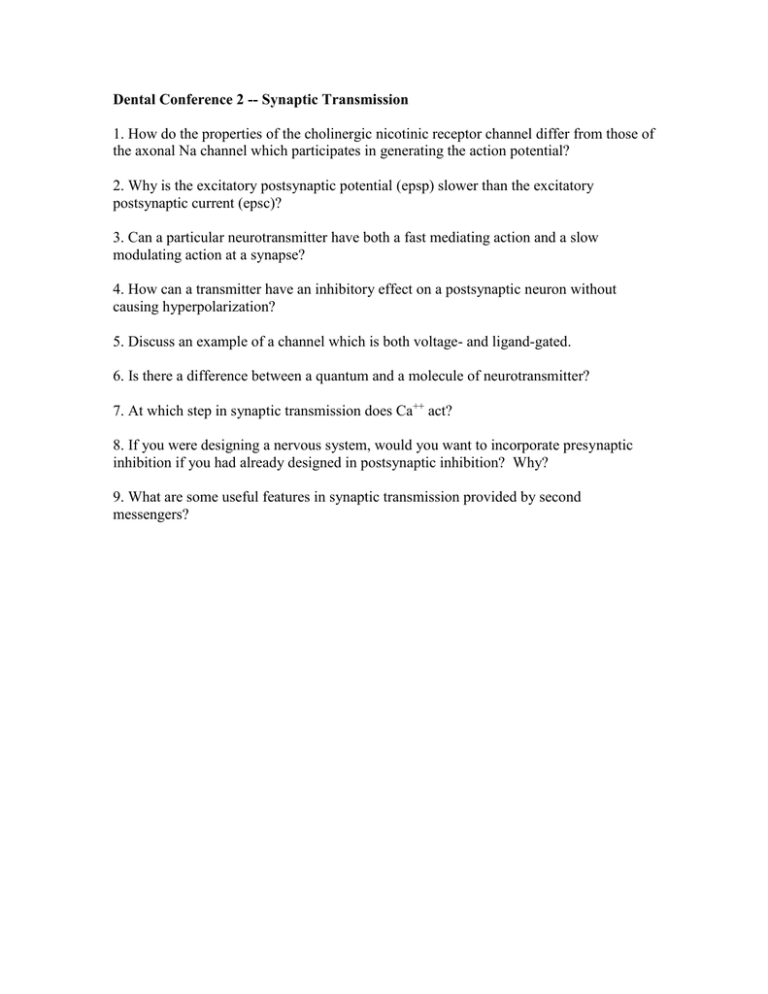
Dental Conference 2 -- Synaptic Transmission 1. How do the properties of the cholinergic nicotinic receptor channel differ from those of the axonal Na channel which participates in generating the action potential? 2. Why is the excitatory postsynaptic potential (epsp) slower than the excitatory postsynaptic current (epsc)? 3. Can a particular neurotransmitter have both a fast mediating action and a slow modulating action at a synapse? 4. How can a transmitter have an inhibitory effect on a postsynaptic neuron without causing hyperpolarization? 5. Discuss an example of a channel which is both voltage- and ligand-gated. 6. Is there a difference between a quantum and a molecule of neurotransmitter? 7. At which step in synaptic transmission does Ca++ act? 8. If you were designing a nervous system, would you want to incorporate presynaptic inhibition if you had already designed in postsynaptic inhibition? Why? 9. What are some useful features in synaptic transmission provided by second messengers?
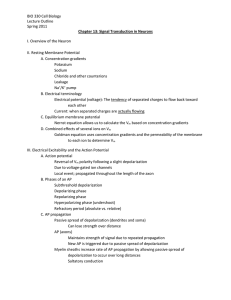
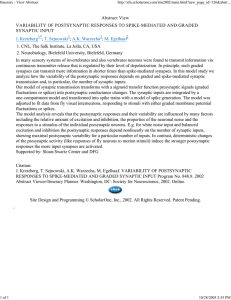
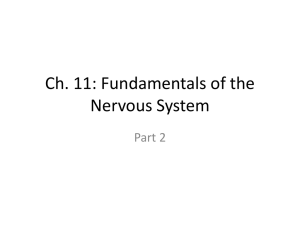
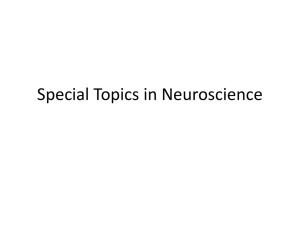
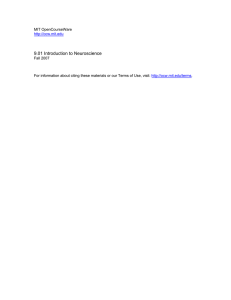
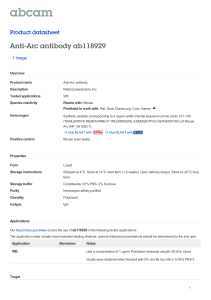
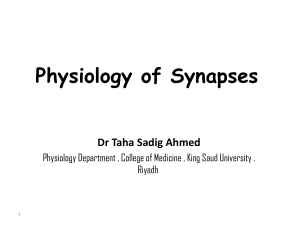
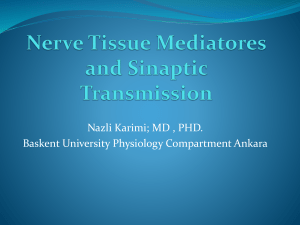
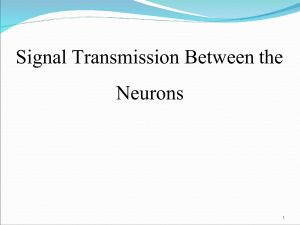
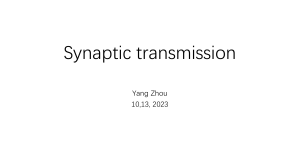
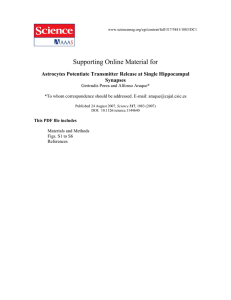
![arXiv:q-bio/0501026v1 [q-bio.QM] 18 Jan 2005](http://s2.studylib.net/store/data/018612998_1-2c5fba904ee2acebff1e35a22d903c0a-300x300.png)